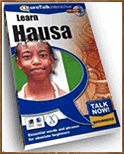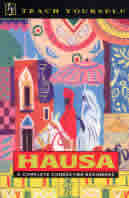

20/11/2025 01:54:33
Table Of Contents
Last Updated
Hausa Food (Abincin Hausawa)(Fuud)
Hausa food? Thinking of enjoying the culture and traditional hausa dishes? For an hausa people,
meat is not much on the menu, but traditionally eating mainly grain based and dishes of dairy products.
Hausa people are mainly Muslim people and due the restrictions of the Islamic diet, no pork meat is ever served at
the traditional Hausa home.
Hausa Traditional Dishes
|
This led some people to wonder if hausa people do use vegetable oil or groundnut oil or palm oil and tomatoes to cook their food at all.
In Nigeria (West African), it is easy to see Igbo restaurants or Yoruba restaurants or English restaurants, but you rarely see an Hausa restaurants other than Aboki {Nigerian (hausa) term for friend} me tea and Suya spots or any hausa food served anywhere around. Why is it? "No body knows".
You may wonder why is it that Hausa people are rarely fat? Could it be because of their food having less calories than that of Yoruba and Igbo foods? Imagine Ogbono or Egusi or Stew with just meat or fish?
Food such as Yakuwa,Kerikeshi or Kuka etc... are all greenish-darkish but tasty food. Hausa food hardly use Palm oil (if they do, there is an Igbo influence) in their cooking with groundnut pyramid. All cooking is with vegetable oil.
Some people don't seem to like the smell of Dawadawa (and Tuwo or tuwom masara), but do like the delicacy of Ewedu soup, Gbegiri soup, and Goose goose... that is.. Cuscus and Zogole salad, but not Miyan kuka - Kuka soup {made with powdered baobab leaves and thickened lightly with dried} and Tuwon Shinkafa {a Northern Nigerian fufu recipe that is served with Miyan}.
In Hausa Language, the hausa word Nono is the cow’s milk sold by the Fulani women.
Hausa Food Recipes
This main vegetables list variety keeps the Hausa people in very good healthy diet food list.
Vitamins and minerals are to be found in the vegetables that they eat as a part of their cultural and traditional diet.
Fura Da Nono Recipe
Fura da Nono Ingredients Quantities
Raw groundnut 2 cups
Rice 1/2 cup
Yogurt 1 litter
Lime juice 1 teaspoon
Water 2 litters
Sugar to taste
Preparation Methods for Fura Da Nono
Mix the flours with all the spices thoroughly.
Add a little water and mix to form a thick paste.
Mould into medium sized balls.
Boil the water for about 5 minutes.
Add the balls to the boiling water and continue boiling for about 20 minutes.
Remove from the boiling pot and pound thoroughly.
Mould into small balls and sprinkle corn flour to keep the balls moist.
Serve mashed with Nono or Yoghurt and sugar to taste.
Mia Kuka Recipe
Kuka itself is a leaf is that is gotten from kuka tree. It is usually dried and grinded to get kuka that is used for the mia kuka.
Mia Kuka Ingredients Quantities
Beef (cooked) 8 medium pieces
Dried fish 1 medium size
Fresh pepper optional (ground) 4 medium size
Kuka 2 tablespoons
Dawadawa 1 cake
Yaji 1 teaspoon
Potash Pinch
Palm Oil (optional) 1 cooking spoon
Maggi Cubes 2
Water 1.5 litres
Salt to taste
Preparation Methods for Mia Kuka
Season the beef with 1 Maggi Cubes, salt and onions
Boil the beef for about 35 minutes.
Add the fish, ground pepper and Yaji.
Boil for about 10 minutes.
Add the ground Dawadawa.
Cook for about 10 minutes.
Add the Remaining Maggi Cubes.
Stir and add salt to taste.
Turn off heat allow to cool for 5 minutes.
Then add the kuka and whisk thoroughly to increase resilience.
Return to heat and simmer for 2 minutes.
Serve with Tuwo dawa.
Kunun Gyada Recipe
Kunun Gyada Ingredients Quantities
Raw groundnut 2 cups
Rice 1/2 cup
Yogurt 1 litter
Lime juice 1 teaspoon
Water 2 litters
Sugar To taste
Preparation Methods for Kunun Gyada
Mix the flours with all the spices thoroughly.
Add a little water and mix to form a thick paste.
Mould into medium sized balls.
Boil the water for about 5 minutes.
Add the balls to the boiling water and continue boiling for about 20 minutes.
Remove from the boiling pot and pound thoroughly.
Mould into small balls and sprinkle corn flour to keep the balls moist.
Serve mashed with Nono or Yoghurt and sugar to taste.
Pate Recipe Hausa
Pate's Ingredients Quantities
Dried gridded maize not powdered,
Green leaf,
Yakwa leaf gawta,
Fresh groundnut or white beans as preferred.
Dawadawa.
Preparation Methods for Pate
Pour water inside the pot when it boil you add the grinded maize which is known as Saiki
You stir until is cooked then add your groundnut leave to boil for 5 minutes
then add your gawta and yakwa leave then green leave (Alaho). Allow to boil for at list 3 minutes.
Now it is ready.
Masa (Wayna) Recipe
Get one (1) mudu of white rice, then boil half for some time and soak half. Mix together and grind, then leave for twelve hours.
If you are to fry it - you add yeast 30 minutes before the frying, pound pepper, cut onions and put the casco (frying pan for frying masa) on the fire.
Casco is of different sizes some are 6, 8 and 12 cups.
Drop your oil in the casco pot, then mix the quantity that you want to fry at that time with sugar and little salt and stir very well then put the normal measurement in the cup and start frying.
Best served with groundnut soup (Mia Geda) with little Yakwa leaf or Yaji or salt.
Awara (Soya beans cake) Recipe
Soak the raw soya beans for two hours and then grind.
After grinding you sieve and pour it into a pot, when it boil you should add little alum or water sieved out from raw pap (Akamu), then boil for at least 1hour 30 minutes.
Put down the pot and pour the boiled liquid into a net or a scarf to drain the water.
Before draining the water add you grinded pepper and onions in the scarf, then squeeze the water very well, drop a block (cement block) or stone on it in order to get a square or rectangular shape, cut in your own preferred sizes and fry with groundnut oil.
Serve with Yaji (grinded dry pepper) or salt or stew.
Danwake Recipe
Get 1 mudu of flour meal and mix it with Kuka to change the colour.
Mix with cold water and leave for some time then boil water, then mould and put in the boiling water.
When you do that it will sink, then when it get cooked it will float, then transfer them into a bowl of cold water.
Best served with fried groundnut oil that is mixed with onion, maggi, salt and pepper or with stew.
Kuli-kuli (Groundnut cake) Recipe
Fry your raw groundnut half way (i.e. not fully cooked), mix with sand, then pill the back of the groundnut and add dry pepper, grind together, turn the grinded groundnut into a bowl and massage with your hands or pour in a mortal and stir continuously with a pestle then add little salt and water.
Stir until it becomes thick for molding and also bring out oil then mould to your preferred size and fry with the oil you got from the groundnut.
Serve with garin kwake (garri made from cassava) dry or soaked and can also be grinded and use for African salad.
Kunun Tsamiya Recipe
Yadda Ake Hadawa
A zuba gari gwargwadon yadda ake bukata a mazubi
Sannan a kawo ruwa kadan a dama shi ya yi kauri
Kano a kawo tafashesshen ruwa a zuba daidai miscali
A dama shososai ya hadu
A sha da sukari ka zuma idan ana bukata
Abin Da Ke Ciki
Gero Citta
Tsamiya Kanimfari
Barkano Masaro
Kunun Tsamiya Ingredients Quantities
Bulrush Millet
Tamarind Pulp
Chilli Pepper
Ginger
Cloves
Sugar To taste
Preparation Methods for Kunun Tsamiya
Empty contents into bowl or mug.
Mix into paste with 100ml of water.
Pour 600ml of fresh boiling water and stir well.
Add sugar or honey to taste.
Note the followings - English to Language Hausa:
| pepper (fresh) | borkonu |
| pepper (dry & grinded) | yaji |
| salt | gishiri |
| palm oil | manja |
| beef | naman shanu |
| dry fish | busheshen kifi |
| lime juice | samiya |
| to stir (or stiring) | juyawa |
| spoon | chokoli |
| pot | tukunya |
| pound | daka |
| potash pinch | kanwa |
| spoon | Chokali (Tsokali) |
| water | ruwaa |

